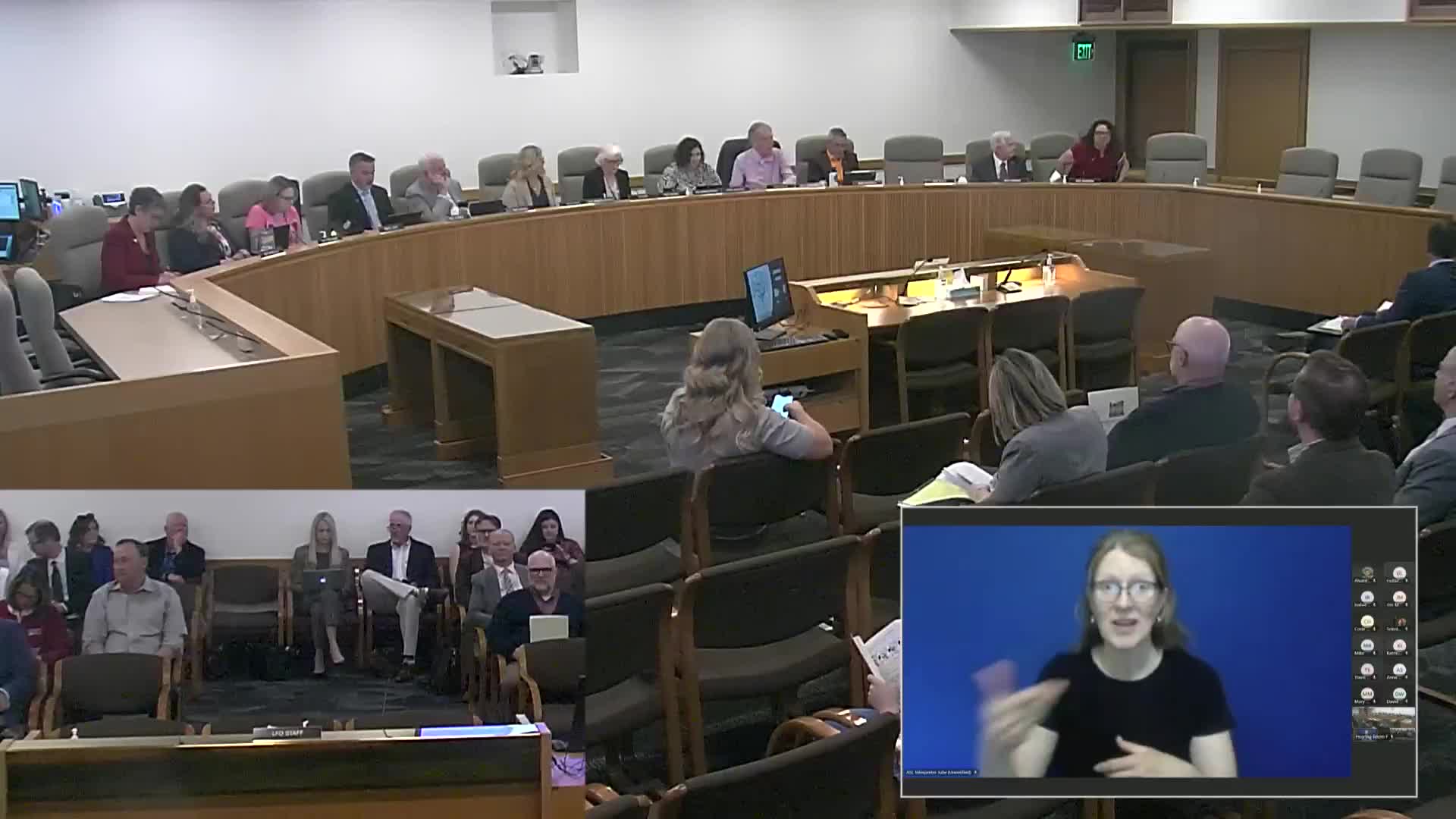House committee hears Senate Bill 974A to impose 90‑day engineering review clock and narrow some design reviews
Get AI-powered insights, summaries, and transcripts
Subscribe
Summary
The House Committee on Housing and Homelessness on May 5 heard testimony on Senate Bill 974A, a measure that would create deadlines for local review of residential engineering plans, define an "urban housing application" and narrow certain design‑review requirements for larger projects inside urban growth boundaries.
The House Committee on Housing and Homelessness on May 5 heard testimony on Senate Bill 974A, a measure that would create deadlines for local review of residential engineering plans, define an "urban housing application" and narrow certain design‑review requirements for larger projects inside urban growth boundaries.
Supporters told the committee the bill would reduce delays in moving greenfield and subdivision projects through land use and engineering review, while local governments and municipal advocates warned the changes could prompt denials, higher local fees and costly litigation if the proposed remedies include one‑way recovery of engineering costs.
The bill’s authors and proponents described three central changes. First, SB 974A would expand the limited land use decision process for residential entitlements described in the bill as "urban housing applications," applying an expedited procedural track to projects within urban growth boundaries that are planned or zoned for residential use. Second, it would establish a 90‑day "shot clock" for final engineering review — the detailed plans for roads, utilities, stormwater and related infrastructure — modeled on the existing 120‑day timeframe for land use entitlements. Third, it would limit some local design‑review requirements for certain larger new developments (the draft referenced a 20‑dwelling threshold), while explicitly excluding public‑health, safety and statewide planning goal standards.
"We need our builders and developers to build homes, and we need to make it easier for them because we are in a crisis," said Senator Anderson, sponsor of the bill, urging support. "Let's join the solution, not be part of the problem." He described the bill as intended to "deliver urgency by tackling delays head on" and said it applies only within the urban growth boundary.
Proponents from the development sector and the Oregon Home Builders Association described technical updates in the posted A‑4 amendment intended to make the definition of "final engineering plans" clear, to stop the shot clock while plans are in the applicant’s hands, and to permit the parties to agree to 30‑day extensions. Samantha Bair of the Oregon Home Builders Association said the A‑4 amendments were drafted with municipal input to make the bill "technically implementable" and to narrow the definition of recoverable engineering costs to the back‑and‑forth review exchanges rather than all engineering work.
"What this bill does is it will create for the first time ever a shot clock for engineering approvals," said Dave Honeycutt of the Oregon Property Owners Association. He and other supporters said predictable timelines would reduce carrying costs and permit delays that increase the final cost of homes.
Cities and municipal legal counsel testified with concerns about three main points: (1) the statutory fit of including zone changes and comprehensive‑plan map amendments within a limited land use decision; (2) the practical effects of a 90‑day engineering clock on jurisdictions with limited staffing and on very large, complex multi‑phase projects; and (3) the bill’s proposed remedies for missed deadlines, including a writ of mandamus with recovery of engineering fees. Alexander Ring, housing and land‑use lobbyist for the League of Oregon Cities, said the League supports clearer expectations for engineering review but opposed the bill as written, describing the A‑4 as an improvement that still needs further amendment.
Chris Crane, municipal attorney who assisted drafting, flagged a legal conflict if the bill treats zone changes or comprehensive plan map amendments as "limited land use decisions." "The statute says you cannot apply your comprehensive plan policies in a limited land use decision," he told the committee. "There is no way you can review and approve a zone change without referring to the comprehensive plan." Crane said that subdivisions and partitions are already covered by the current limited‑decision statute, so the bill should avoid sweeping in actions that legally require application of comprehensive plan policies.
On remedies, municipal witnesses warned that permitting a prevailing applicant to recover broad engineering costs would create an incentive for developers to pursue mandamus litigation, and would expose cities to substantial contingent liability. Crane noted that engineering costs for a moderately sized subdivision can run into the hundreds of thousands of dollars, and that mandamus awards that include such costs would change municipal incentives about whether to deny incomplete or problematic plans.
Municipal presenters also raised operational concerns: under the bill jurisdictions may need to increase application fees to pay for additional engineering review capacity, and smaller cities without in‑house engineering staff could face particular strain. Proponents responded that fee increases are an established mechanism to cover review costs and that predictable timelines could reduce overall costs by getting projects to completion faster.
Several witnesses and committee members discussed how SB 1537 (passed earlier) and the ongoing HAPO (Housing Affordability and Production Office) work intersect with the bill. Proponents said HAPO does not cover engineering review and that HAPO’s work would not replace the need for statutory certainty in engineering timelines; municipal witnesses urged implementing prior changes before layering this measure on top.
The committee did not take final action on SB 974A on May 5. Chair Marsh said the committee will hold a follow‑up public hearing and post a work session on the bill next Monday so authors, cities and stakeholders can continue technical drafting and negotiations.
The record for the hearing includes the A‑4 amendment language posted to the legislative bill page and the testimony summarized above.
